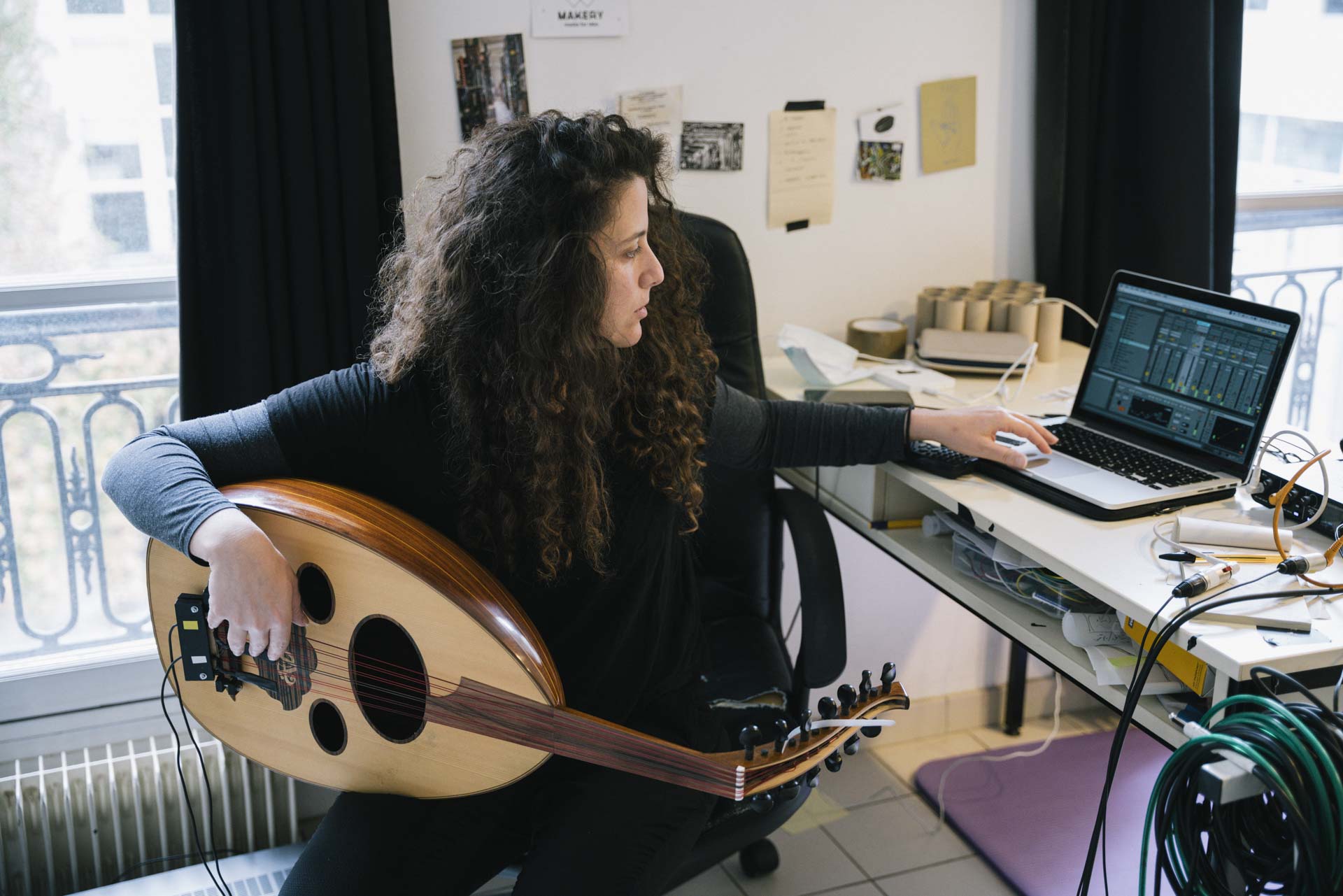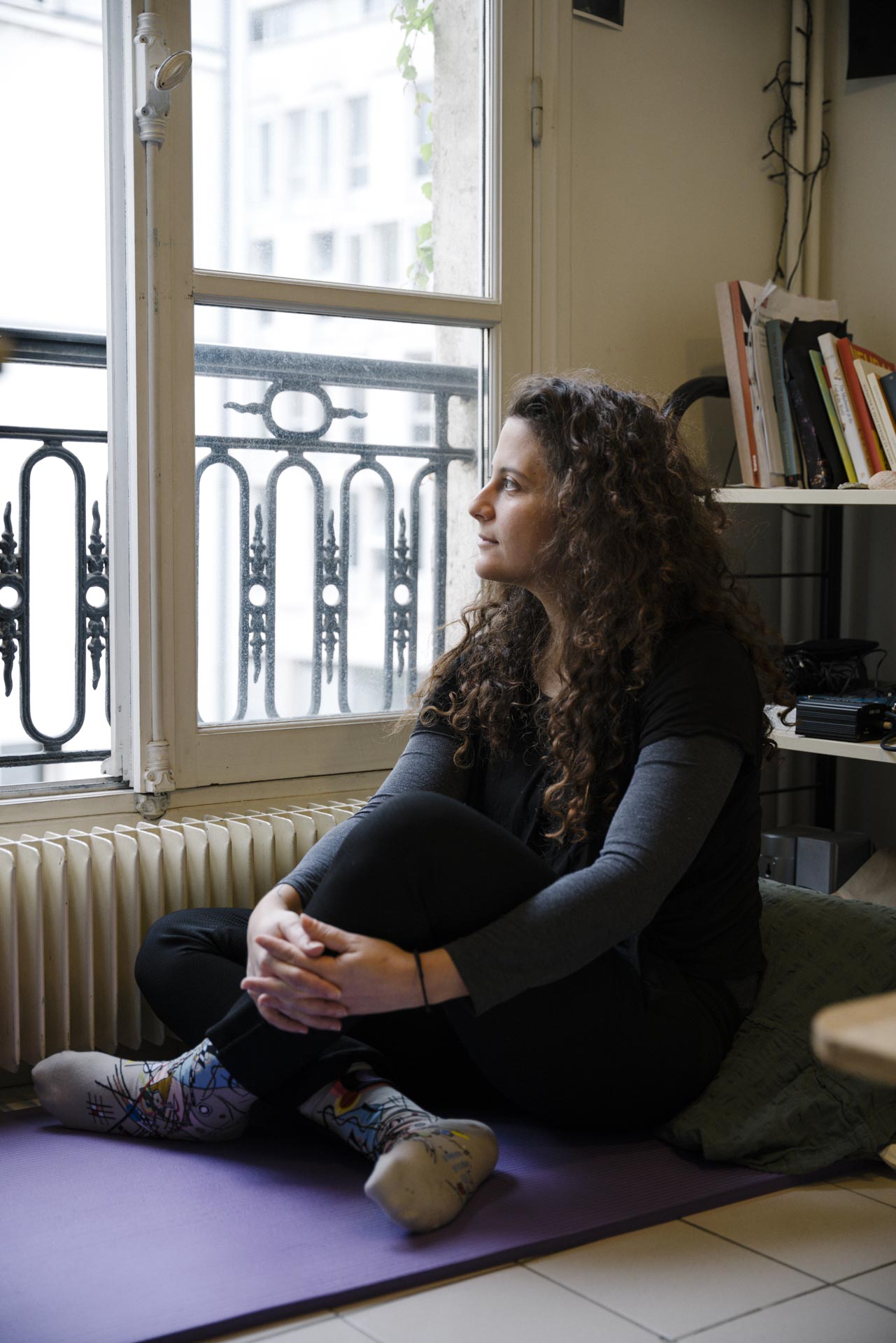INTERVIEW
Can you tell us, in a few words, what was your background before you were in residency at the Cité internationale des arts?
"I am a Lebanese musician and composer. I started my career in music almost 15 years ago now! Since then, I have been working on various projects both solo and collaboratively.
Being part of the alternative music scene in Beirut, I have developed my musical language inspired by the city and its musicians and artists who are constantly pushing the limits of artistic expression and questioning it. I also learned a lot from the musicians I met during my travels and residencies all over the world (South Korea, United States, Morocco, Spain, France...).
At the same time, I did a master's degree in musicology. I arrived at the Cité internationale des arts with a research project that will serve as a basis for my new compositions. Through this project, I am trying to draw parallels between the Arab musical system and electronic music and to understand the role of technology in today's composition."
You have been selected by the Cité internationale des arts Committees, what is the importance of an artistic residency in Paris for your career/course?
"I applied for a residency at the Cité internationale des arts following a need to find myself in a setting where I could focus entirely on research and composition. It is very important to be able to work alone but also to have the opportunity to exchange with artists from different disciplines and experiences. This balance between introspection and exchange is essential to the development of my practice and my way of thinking.
Also, being in the center of Paris and exploring the city and all its dimensions and richness – especially in everything related to research in electronic/electro-acoustic music and technology, encounters with musicians from different practices, and artistic events – have been a primary source in the evolution of my current project.
I came here thanks to the support of the association Mophradat and in collaboration with Césaré CNCM, Reims."
What changes and developments are to be noted in your work thanks to the residency at the Cité internationale des arts?
"It is still early to note all the changes and developments in my work, but an important phase of my project was the design and development of a device for my instrument, the oud, which gives it a new electronic dimension. I imagined this new working tool, which I developed in Césaré with Nicolas Canot, thanks to my research still in progress on the aesthetics of Arabic music and the new technological and electronic possibilities. It goes without saying that my way of thinking about composition and interpretation has evolved towards a new universe that I am currently exploring.
Also, I have had the chance to make new and enriching encounters with musicians based in Paris, and in France (being in the right place at the right time), with sometimes the start of new collaborative creations, such as Terra Incognita 1, with Kamilya Jubran and Floy Krouchi. These encounters have been essential in the evolution of my musical language and in my way of thinking about composing with others, expression and interpretation. Above all, they left their mark on me on a human level".
BIOGRAPHY
Musician and songwriter, Youmna Saba started her musical career in 2006, and has released four albums to date (Min Aafesh el Beit in 2008, Hal Bint Aabalha Tghanni in 2011, Njoum in 2014 and Arb'een(40) in 2017)
Her work deals with the relationship between songwriting and narrativity, using elements of Arabic music, mixed with electronic processing. She is currently preparing a new project Taïma' (supported by the Mophradat association), a research project started in early 2019, which deals with the relationship between electronic music and the art of qasida (improvised vocal musical interpretation of a text in classical Arabic).
Youmna Saba has collaborated with several musicians, including Mike Cooper, Jean-Marc Montera, Kyungso Park and Nadine Shah, and has participated in several artist residencies such as Hwaeom Spiritual Music Residency (South Korea, 2017), Sound Development City (Spain, Morocco, 2016), Gyeonggi Creation Center (South Korea, 2013) and OneBeat (United States, 2012). She is also part of two Sodassi creation projects (Paris, 2018 and 2019) and Menura (Lebanon/Switzerland, 2018 and 2019).
Youmna Saba holds a DEA in musicology (2014) from Antonine University in Baabda, Lebanon. Her thesis exposes the parallelism between visual art and music in the context of traditional Arab arts.














